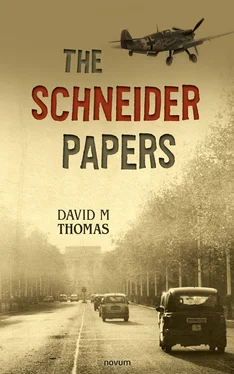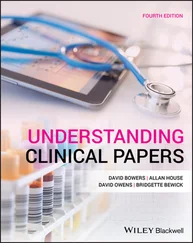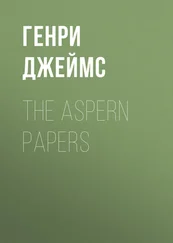He clenched his hands together and bowed his head, as if in prayer.
After a second or so, Major Alastair Cartwright MC raised his head and started intently at Squadron Leader Harry Mason, his eyes now cold and focussed in deadly determination, ‘We, us, have to move forward, and do what needs to be done. Quietly, but firmly.
‘Your trip to Germany is to talk with certain people, Germans, who are most certainly not in league with Hitler; in fact, they are part of an uncoordinated attempt to bring Hitler,’ and Cartwright lowered his voice to a whisper, ‘down.
‘Lefoy will be your coordinator, he is one of us, and he will get you to meet an industrial-scientist type and a Luftwaffe technician who have information. I don’t know exactly what, but they are anxious to talk to us. Meanwhile Matthews will do the same, but on the banking, economics side. By the way, did you know he has an economics degree from Cambridge?’
‘No, I did not!’ said Mason, quite surprised by this revelation.
‘He learnt to fly in the University Air Squadron, and received his commission in 1926. You met him in 1927. Young sprog. You paid the mess damages bill I’m told! He completed his short term commission and moved onto the reserves list, like you. Currently employed by Lloyds Bank in Lombard Street. Good man, very bright.’
Cartwright then covered aspects of this new Nazi creed, this new religion as he called it. The Hitler quest for expansion to the east; how the Poles were regarded as Asiatic and therefore were not of the same racial purity, that is to say Aryan, and therefore inferior. Thus Poland as a country was inconsequential to Germany’s expansionist plans.
By the time the bottle of Springbank malt whisky was nearly empty, it was very late. He got the distinct feeling, or was it hope, that Cartwright was preparing to leave. But no, Cartwright got up slowly from his chair.
‘We’re nearly there,’ he said with a smile and a nod, having read Mason’s thoughts, and again started his pacing, past the fireplace to the half open door leading into the hall, and then back again to his chair by the window.
‘The military machine is growing, and it will be used. My question is very simple: where is the aviation fuel going to come from, to feed the aircraft we have now all agreed are to be built? Aviation fuel is different from low grade gasoline or diesel that will supply the Werhmacht, and the fuel oil for the Kreigsmarine.
‘Your main assignment is synthetic aviation fuel. Location of plants, and how much can be produced, and future plant expansion plans. Volumes and crucially, timing schedules can help us guess what he’s up to. You will be introduced to someone in Germany, probably outside Berlin.’
‘Synthetic fuel? What does that mean? I know nothing of this!’ Mason became alarmed. He was asked to investigate something he knew nothing about.
Cartwright raised his hand in mollification. ‘You’ll be briefed in Berlin, all to be revealed. You’ll also meet someone who should help in identifying interesting design aircraft on the Air Ministry, the Reichsluftfahrtministerium, the RLM drawing board. We have a leap of faith in our new Hurricane and Spitfire fighters. Hurricane production started in June, and the Spitfire prototype only flew in March. It looks good, but at least a year away from production status. We need to know what the Hitler strategy is, what’s the thinking.’
‘I should,’ he started hesitatingly, ‘give you a bit of background to our Military Intelligence and various committees. It has been in the past, a bit of a problem for us, obstructive even.’ Mason looked up at him with a look of astonishment in his face. Cartwright held out his hand, in another placatory gesture, and continued.
‘The role of the Air Intelligence Directorate is to judge the nature of the German air threat,’ and he used his left hand fingers as counters. ‘One, provide current estimates of German strength; Two, long-range predictions about future growth; and Three, build a picture of likely strategy doctrine.
‘It has unfortunately fallen down in all three categories.’ Mason, who had slowly sunk down into the comfortable envelope of the soft cushioned sofa, now readjusted himself and sat up, knees together, and reached for his glass of whisky.
‘Up to this year, Mason, in the air strength and prediction line, Air Intelligence had been using information supplied in May 1934 – two years ago! – by the French, the Deuxième Bureau. Before that it had nothing to work with, and we had nothing! What do you make of that? The French informed us that the new Hitler rearmament programme was to supply, by 1935, some 500 new aircraft in various roles. Let’s just take that as our starting point, even though certain influential individuals within the various intelligence and defence committees did not agree or trust the number. The French also said that the figure would be for one, as the Germans call it, air division or armada, and the Germans wanted to increase the number of divisions to four or even five and six. But no timeline is known.
‘The Air Ministry answer to this … this fireball of information, was to stress and rely on the term ‘efficiency.’ The Air Ministry, based on our own aircraft building efficiency – in peacetime and in a benign international environment – concluded, wrongly in my mind, that it would take the Germans up to possibly ten years to achieve this maximum number of air divisions. In other words, Mason, the Air Ministry, calculated our peacetime production capability, applied it to the Germans and extrapolated. This grave miscalculation is up against a German reality of seemingly unlimited funds, the support and encouragement of aircraft manufacturers and suppliers and, of course, the gung-ho expansionist plans of the Nazi regime.’
The sitting room in Henrietta Street went silent. Both sat and stared straight ahead. One trying to take in what had been said, the other embarrassed by what he had said.
Cartwright continued slowly and quietly, confessing a dark family secret. ‘Not a pretty picture. Our intelligence sources are lamentably poor and the Air Ministry’s blinkered thinking inexcusable. I am not even going to offer an opinion on our politicians. We are getting better. But we need to do much better. Our lives and lives of our countrymen depend on it.’
Cartwright, by this time, had spoken with emotional highs and lows in his monologue, and he was tired. Not just by the emotional drain of his delivery of familiar information and chronology of unsavoury events and conclusions he had lived with for a number of seemingly unrewarding years, but compounded by deep disappointment and anger of how he had been betrayed by the very system he worked within.
He took a deep breath, and to an observer it would seem he had regained his stamina and his optimism.
‘So now we are on track. The Air Ministry has, how to put it, come to terms with its past shortcomings and acknowledges a gap in Germany’s favour between German and British industrial production capability. So it’s now all hands to the pump!
‘The Foreign Office has its own intelligence unit, the Secret Intelligence Service, the SIS. But it’s not very effective for what I want to achieve. It lacks resources and sources. We were approached earlier this year by a source inside Germany. Actually, one of yours, Royal Air Force retired, and now a respected businessman, married to a fraulein and living in the Reich. He seems to have excellent Luftwaffe contacts, and his information has been doubly checked where we can, and it holds water. That is all I am prepared to say to you for now.
‘I don’t want be too pessimistic, Mason,’ he said, and gave an encouraging smile, followed by a quick draining of his glass.
Читать дальше












